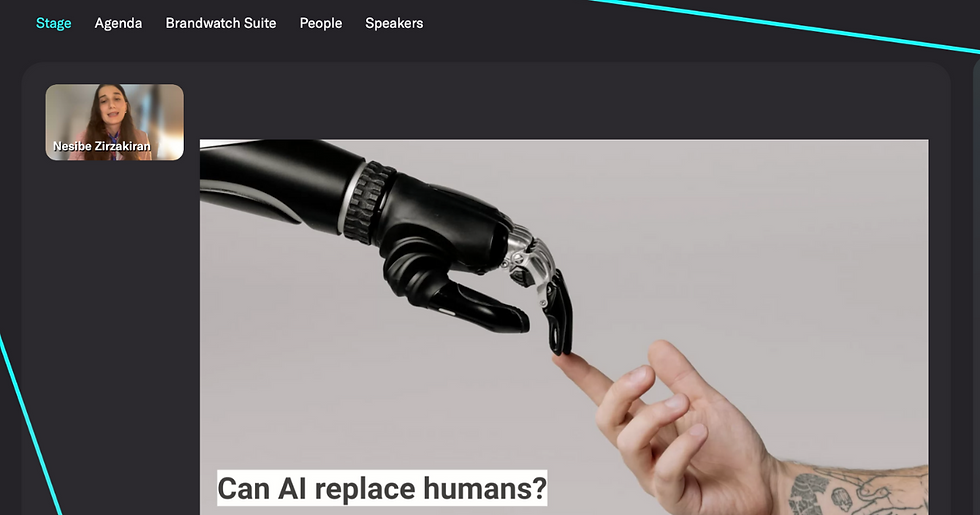Unleashing the Power of AI: Insights from Sparks Summit by Brandwatch
- KayJay McDonald-Ferguson

- Nov 7, 2023
- 2 min read
Updated: Nov 13, 2023
It was great to attend the first session of the Sparks Summit by Brandwatch, where Nesibe Zirzakiran, a Product Marketing Manager, shed light on the transformative impact of AI-driven strategies in the realm of social media management. In this blog post, I'll be summarising the key takeaways from Nesibe's insightful presentation.
The Role of AI in Social Media Management:
Accelerating Research:
Theme identification
Trend analysis
Summarisation
Sentiment analysis
Audience analysis
Optimising Content:
Enhancing social media content
Generating compelling copies
Facilitating A/B testing
Sourcing and repurposing content
Personalising content
Improving Engagement:
Directing sentiment and emotions
Automating responses
Analysing language

Strategies for AI Implementation:
Content/Campaigns - Leverage generative AI for compelling and on-brand social posts.
Trends and Issues - Utilise AI to stay ahead by identifying emerging trends and potential issues.
Strengths and Weaknesses - Assess your brand's strengths and weaknesses through AI analysis.
Share of Voice and Positioning - Monitor your brand's share of voice and adjusting positioning strategies.
To avoid pitfalls when using AI you need to:
Review AI-Generated Content - Confirm the accuracy and relevance of AI-generated content.
Seek Customer Feedback - Constantly gather feedback to refine and adjust your AI strategy.
Ensure Data Privacy and Compliance - Adhere to data privacy regulations and ethical considerations.
Provide Enough Context - Ensure AI has sufficient context to generate relevant and on-brand content.
Have consistency with Brand Voice - Regularly check and maintain consistency with your brand's voice.
The future of AI holds promising prospects, notably in predicting the unpredictable by forecasting trends and understanding user behaviour. Automated content moderation could become very important as they could elevate content quality while ensuring compliance with industry standards. Furthermore, we are likely to witness a significant shift towards precise personalisation, where AI technologies will play a pivotal role in tailoring content and experiences to cater to individual preferences.
Nesibe presentation highlighted the game-changing potential of AI From accelerating research to optimising content and improving engagement, AI-driven strategies offer a range of opportunities. As we step into the future, embracing the power of AI will not only streamline design processes but also pave the way for unprecedented creativity and personalisation. It was a truly insightful session, and I look forward to witnessing the continued evolution of AI.
.png)

Comments